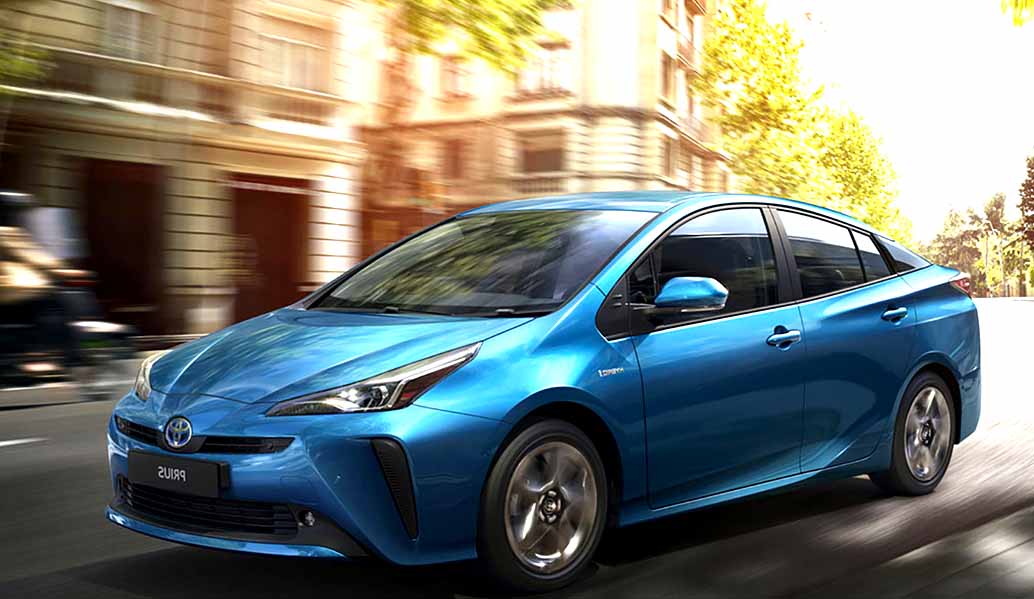In a rapidly evolving automotive landscape, characterized by the impending ban on new petrol and diesel models by 2035, the shift toward electric cars is undeniable. While the world adapts to this transformative change, investing in a used electric car is increasingly becoming a practical and financially savvy choice.
Over a decade has passed since the introduction of the first truly practical electric vehicles (EVs) in the UK market. In 2022 alone, more than 100,000 new electric cars hit the roads within the first five months. Consequently, the used electric car market has surged, with over 70,000 pre-owned EVs changing ownership in the UK in 2022, marking a substantial 35% increase from the previous year.
Why Opt for a Used Electric Car?
The primary allure of purchasing a used electric car lies in its affordability. While affording a brand-new car might be within your means, it’s prudent to consider the versatility of your finances, given the myriad demands of modern life.
Choosing a used EV can serve as an experiment to assess whether an electric vehicle suits your needs or be motivated by the ecological advantages of maintaining an existing, well-kept car over manufacturing a new one.
For those transitioning to electric vehicles, it presents the opportunity to keep some financial flexibility by retaining the option of owning or renting a complementary petrol or diesel car for longer journeys.
Additionally, it’s an ideal moment to explore the realm of modern classics, particularly if you have a penchant for automobiles. In case you require a backup for extended drives, a modern classic could not only fulfill that role but also appreciate in value over time.
Furthermore, company car drivers and self-employed individuals can reap various benefits from electric cars, particularly in urban settings where incentives and tax advantages come into play. The social cachet associated with driving an EV in certain regions of the UK also shouldn’t be underestimated.
However, the most compelling argument for choosing a used electric car is its remarkable reliability and ease of maintenance. It’s surprising how eliminating combustion engines and the wear and tear associated with them has extended the longevity of these vehicles.

Factors to Consider When Buying a Used Electric Car
Before embarking on your journey to purchase a used electric car, it’s essential to take several factors into account:
- Early Models vs. Contemporary Options: Early EV models may offer budget-friendly options, especially for city commutes. However, as demand for EVs surges, prices may rise. Consider your charging infrastructure, parking space, and potential road charging or congestion schemes when making your decision.
- Vehicle History: Conduct a comprehensive check on the car’s MOT history, even for private sales, as EVs can sometimes suffer from neglect in terms of maintenance. Check for signs of neglect, such as worn-out tires, lights, and wipers.
- Battery Lease: Some older Renault or Nissan EVs may still have battery lease agreements in place. Ensure you understand the terms and whether any fees apply.
- Service History: Inspect the service history, especially for battery maintenance. EVs often come with extended warranties for their batteries, and you’ll want to ensure this coverage is intact.
- Accessories and Features: Verify that all necessary charging cables are present in the car’s boot. Test the infotainment system, including the state of the navigation maps. Check the condition and functionality of connected services, if applicable.
- Exterior and Bodywork: Thoroughly examine the car’s bodywork, door seals, and glass for damage or wear. Pay special attention to rubber seals, which may have been affected by UV exposure.
- Test Drive: During the test drive, listen for unusual noises, rattles, or clonks over bumps. Test the car’s handling, braking, and steering components. Ensure the charging cable works correctly.
- Cooling System: Check for coolant leaks in the radiator and cooling system. Look for signs of antifreeze odor or bring a UV torch to detect leaks. Check the accessory battery’s condition.
Recommended Used Electric Cars
If you’re considering a used electric car, here are some noteworthy models to explore:
- BMW i3 (2013-2022): Renowned for its innovative engineering and lightweight construction, the BMW i3 offers a unique driving experience in the electric vehicle segment. Its compact size, tall profile, and distinctive design make it a practical and stylish choice.
- Nissan Leaf Mk1 (2010-2018): As one of the pioneering electric family hatchbacks, the Nissan Leaf boasts a proven track record for reliability. With affordable efficiency and a history of success, it remains a strong contender in the used EV market.
- Renault Zoe (2013-present): The Renault Zoe, a charming French supermini, is known for its practicality, nimble performance in urban settings, and minimalistic design. Newer models offer impressive range and efficiency.
- Tesla Model S (2013-present): The American luxury electric car, the Tesla Model S, stands out for its sleek design, impressive performance, and continuous improvements. Its upgradability and long-range capabilities make it an attractive option.
- Vauxhall Corsa-e/Corsa Electric: Offering an abundance of well-equipped models from a reputable mainstream brand, the Vauxhall Corsa-e delivers quick and responsive driving experiences. Competitive pricing, reliability, and low running costs make it a compelling choice.
Is Now the Right Time to Buy a Used Electric Car?
While used car prices have been on the rise, electric vehicles have particularly experienced significant price fluctuations due to supply constraints during the COVID-19 pandemic.
As of late 2023, signs suggest that electric car prices are beginning to stabilize, influenced by competitive pricing strategies from manufacturers like Tesla.
It’s essential to consider your individual circumstances when deciding whether now is the right time to buy a used electric car.
Factors such as access to home or workplace charging, financial considerations, and infrastructure improvements should guide your decision-making process.
In conclusion, purchasing a used electric car offers a multitude of benefits, including affordability, reliability, and environmental consciousness.
By conducting thorough research and considering your specific needs, you can find a used electric car that aligns perfectly with your preferences and contributes to a greener future.
A Comprehensive Guide to Buying Used Electric Cars
In a rapidly evolving automotive landscape, characterized by the impending ban on new petrol and diesel models by 2035, the shift toward electric cars is undeniable. While the world adapts to this transformative change, investing in a used electric car is increasingly becoming a practical and financially savvy choice.
Over a decade has passed since the introduction of the first truly practical electric vehicles (EVs) in the UK market. In 2022 alone, more than 100,000 new electric cars hit the roads within the first five months. Consequently, the used electric car market has surged, with over 70,000 pre-owned EVs changing ownership in the UK in 2022, marking a substantial 35% increase from the previous year.
Why Opt for a Used Electric Car?
The primary allure of purchasing a used electric car lies in its affordability. While affording a brand-new car might be within your means, it’s prudent to consider the versatility of your finances, given the myriad demands of modern life.
Choosing a used EV can serve as an experiment to assess whether an electric vehicle suits your needs or be motivated by the ecological advantages of maintaining an existing, well-kept car over manufacturing a new one.
For those transitioning to electric vehicles, it presents the opportunity to keep some financial flexibility by retaining the option of owning or renting a complementary petrol or diesel car for longer journeys.
Additionally, it’s an ideal moment to explore the realm of modern classics, particularly if you have a penchant for automobiles. In case you require a backup for extended drives, a modern classic could not only fulfill that role but also appreciate in value over time.
Furthermore, company car drivers and self-employed individuals can reap various benefits from electric cars, particularly in urban settings where incentives and tax advantages come into play. The social cachet associated with driving an EV in certain regions of the UK also shouldn’t be underestimated.
However, the most compelling argument for choosing a used electric car is its remarkable reliability and ease of maintenance. It’s surprising how eliminating combustion engines and the wear and tear associated with them has extended the longevity of these vehicles.
Factors to Consider When Buying a Used Electric Car
Before embarking on your journey to purchase a used electric car, it’s essential to take several factors into account:
- Early Models vs. Contemporary Options: Early EV models may offer budget-friendly options, especially for city commutes. However, as demand for EVs surges, prices may rise. Consider your charging infrastructure, parking space, and potential road charging or congestion schemes when making your decision.
- Vehicle History: Conduct a comprehensive check on the car’s MOT history, even for private sales, as EVs can sometimes suffer from neglect in terms of maintenance. Check for signs of neglect, such as worn-out tires, lights, and wipers.
- Battery Lease: Some older Renault or Nissan EVs may still have battery lease agreements in place. Ensure you understand the terms and whether any fees apply.
- Service History: Inspect the service history, especially for battery maintenance. EVs often come with extended warranties for their batteries, and you’ll want to ensure this coverage is intact.
- Accessories and Features: Verify that all necessary charging cables are present in the car’s boot. Test the infotainment system, including the state of the navigation maps. Check the condition and functionality of connected services, if applicable.
- Exterior and Bodywork: Thoroughly examine the car’s bodywork, door seals, and glass for damage or wear. Pay special attention to rubber seals, which may have been affected by UV exposure.
- Test Drive: During the test drive, listen for unusual noises, rattles, or clonks over bumps. Test the car’s handling, braking, and steering components. Ensure the charging cable works correctly.
- Cooling System: Check for coolant leaks in the radiator and cooling system. Look for signs of antifreeze odor or bring a UV torch to detect leaks. Check the accessory battery’s condition.
Recommended Used Electric Cars
If you’re considering a used electric car, here are some noteworthy models to explore:
- BMW i3 (2013-2022): Renowned for its innovative engineering and lightweight construction, the BMW i3 offers a unique driving experience in the electric vehicle segment. Its compact size, tall profile, and distinctive design make it a practical and stylish choice.
- Nissan Leaf Mk1 (2010-2018): As one of the pioneering electric family hatchbacks, the Nissan Leaf boasts a proven track record for reliability. With affordable efficiency and a history of success, it remains a strong contender in the used EV market.
- Renault Zoe (2013-present): The Renault Zoe, a charming French supermini, is known for its practicality, nimble performance in urban settings, and minimalistic design. Newer models offer impressive range and efficiency.
- Tesla Model S (2013-present): The American luxury electric car, the Tesla Model S, stands out for its sleek design, impressive performance, and continuous improvements. Its upgradability and long-range capabilities make it an attractive option.
- Vauxhall Corsa-e/Corsa Electric: Offering an abundance of well-equipped models from a reputable mainstream brand, the Vauxhall Corsa-e delivers quick and responsive driving experiences. Competitive pricing, reliability, and low running costs make it a compelling choice.
Is Now the Right Time to Buy a Used Electric Car?
While used car prices have been on the rise, electric vehicles have particularly experienced significant price fluctuations due to supply constraints during the COVID-19 pandemic.
As of late 2023, signs suggest that electric car prices are beginning to stabilize, influenced by competitive pricing strategies from manufacturers like Tesla.
It’s essential to consider your individual circumstances when deciding whether now is the right time to buy a used electric car. Factors such as access to home or workplace charging, financial considerations, and infrastructure improvements should guide your decision-making process.
In conclusion, purchasing a used electric car offers a multitude of benefits, including affordability, reliability, and environmental consciousness. By conducting thorough research and considering your specific needs, you can find a used electric car that aligns perfectly with your preferences and contributes to a greener future.









